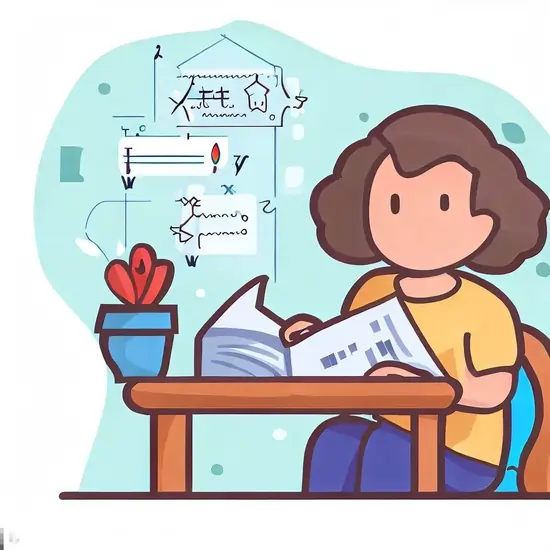A Step-By-Step Guide to Formative and Summative Assessments in Algorithm Homework

We will explore the world of evaluating student progress and understanding within the context of algorithm homework. This comprehensive guide provides helpful insights, strategies, and techniques for effectively implementing both formative and summative assessments in algorithmic learning. This guide equips you with the knowledge and tools to navigate the complex landscape of algorithm homework assessments, whether you are an instructor looking to optimize your assessment practices or a student looking for clarity on how your performance is evaluated. Whether you are an instructor looking to optimize your assessment practices or a student looking for clarity on how your performance is evaluated, this guide can help. We give teachers the ability to give timely feedback, encourage continuous learning, and facilitate student growth by delving into the distinct characteristics, benefits, and implementation strategies of formative and summative assessments. In order to cultivate an atmosphere that is conducive to learning, we look at ways to strike a balance between the various types of assessments, make effective use of technology, and provide students with feedback that is constructive through the use of examples and practical tips. Participate with us on this adventure as we decipher the complexities of formative and summative assessments, making it possible for educators and students to improve their understanding of algorithms and to do their algorithm homework.

Understanding Formative and Summative Assessments
Understanding formative and summative assessments thoroughly is essential for assessing student learning in algorithm homework effectively. This section's first focus is on formative assessments, which are informal, ongoing evaluations that give students feedback as they learn. They enable teachers to assess students' comprehension, spot misconceptions, and promptly modify their pedagogical approaches. Students actively participate in their learning process, develop metacognitive abilities, and mature as self-reliant learners by taking part in formative assessments. Summative tests, on the other hand, provide a thorough assessment of students' overall proficiency with algorithmic concepts. These evaluations, which take place at the conclusion of a unit or course, provide a summary of the learning successes of the students. They assist teachers in assessing the success of their instruction, identifying which students are prepared for more difficult material, and providing insightful criticism for future development. For creating a balanced and successful assessment approach for algorithm homework, it is essential to comprehend the traits and objectives of both formative and summative assessments.
- Informal and Continuous Assessment
- Real-Time Observations, Analyses, and Modifications
- Development of Metacognitive Skills
Assessments that are formative are frequently unstructured and ongoing; they take place all throughout the learning process. They might be in the form of a class discussion, a quiz, a problem-solving exercise, or an interactive activity. There are many different ways they could be presented. The instructors gain insights into the students' levels of comprehension, misconceptions, and areas that require further clarification when they integrate these assessments into the algorithm homework that the students are assigned.
Formative assessments offer students and teachers instant feedback, which is one of the most significant benefits associated with using these types of evaluations. When students receive timely feedback on their algorithm homework, it allows them to address any understanding gaps they may have and make any necessary adjustments in real time. This feedback guides instructional decisions made by the instructors, giving them the opportunity to adapt teaching strategies, modify lesson plans, and provide additional support wherever it is required.
Formative evaluations encourage the growth of students' metacognitive skills, which are necessary for them to become self-regulated learners and are fostered by formative evaluations. Students are encouraged to reflect on their thought processes, determine the problem-solving strategies that work best for them, and evaluate their overall progress while completing algorithm-based homework. Students gain a greater awareness of their strengths and opportunities for improvement when they participate in regular formative assessments, which encourage students to become actively involved in their own learning.
The Role of Summative Assessments: Gauging Overall Mastery
Algorithm homework benefits greatly from summative assessments, which offer a thorough evaluation of students' general subject knowledge. These exams act as a culminating evaluation and are frequently given at the conclusion of a unit, semester, or academic year. Their main objective is to evaluate how well students have learned the material and developed the necessary expertise in algorithmic concepts. Summative assessments provide a comprehensive view of students' performance and readiness to advance to more advanced topics by giving them exams, projects, or presentations. They aid in grading decisions, give instructors insightful information about students' abilities, and point out areas that might benefit from extra assistance or enlightenment. Summative evaluations also give students a chance to consider their learning process, identify their areas of strength and development, and decide on their future academic interests in algorithmic problem-solving.
- Comprehensive Evaluation
- Feedback for Future Improvements
The purpose of summative evaluations is to provide a comprehensive evaluation of the students' acquired knowledge, skills, and abilities throughout the course of the algorithm homework. Exams, group projects, and oral presentations are typical forms that they take. Summative assessments provide a comprehensive view of students' performance and readiness to advance to more advanced algorithmic concepts. These assessments evaluate the culmination of students' learning experiences and provide feedback based on those evaluations.
Even though the primary function of summative assessments is to assign grades, these evaluations can also provide students with helpful feedback that can be used to improve their performance in subsequent assessments. Through summative assessments, teachers are able to identify areas of weakness or areas in which students have a tendency to have common misunderstandings and then provide direction for further improvement. Students are provided with feedback derived from summative assessments, which enables them to make informed decisions regarding future algorithmic endeavours, reinforces strengths, and enables students to reflect on their learning journey.
Implementing Formative and Summative Assessments Effectively
Effective formative and summative assessment implementation is essential for obtaining a precise and meaningful assessment of student learning from algorithm homework. It's crucial to strike a balance between these different assessment types. Regular formative assessments, like quizzes, discussions, and problem-solving activities, allow teachers to monitor students' understanding in the moment, correct misconceptions right away, and adjust their lesson plans as necessary. Students receive immediate feedback from these ongoing tests, which helps them understand the material better and develop metacognitive skills. Furthermore, comprehensive summative evaluations, including exams and projects, ought to cover all of the material covered in terms of both breadth and depth for algorithmic concepts. They should offer a thorough assessment of students' overall mastery, allowing teachers to decide whether they are ready for challenging material. The assessment process can be streamlined to increase efficiency and improve the calibre of feedback given by utilising technology and tools. Giving students timely and helpful feedback during formative and summative assessments gives them the ability to evaluate their progress, pinpoint their areas of weakness, and take proactive measures to improve their algorithmic problem-solving abilities. Instructors can foster a supportive learning environment and help students succeed in their algorithm homework by implementing these assessments well.
- Balance between Formative and Summative Assessments
- Utilize Technology and Tools
- Provide Timely and Constructive Feedback
To ensure that a thorough evaluation of student learning is obtained, it is important to strike a balance between formative and summative assessments. Make frequent use of formative assessments to gauge the level of student understanding in the moment, address common misunderstandings, and direct instructional decision-making. In addition, you should come up with well-structured summative examinations that cover both the breadth and depth of the algorithmic ideas that have been covered and serve as a final measurement of the students' level of mastery.
Utilise various forms of technology and online tools so that you can speed up the evaluation process for your algorithm homework. The development and management of quizzes, coding challenges, and interactive exercises can be facilitated by using software and platforms that are accessible online. These tools not only provide immediate feedback, but they also help in organizing and analyzing assessment data, which enables a more effective evaluation of the progress that students are making.
In both formative and summative assessments, it is extremely important to provide feedback that is timely and constructive. When conducting formative assessments, it is important to give students immediate feedback, focusing on both their strengths and areas in which they could improve. Instruct students to evaluate their own performance and point them in the direction of resources that can help them close any knowledge gaps they may have. In a similar vein, during summative assessments, you should provide feedback to students that encourages their growth and development by offering specific suggestions for areas in which they could improve.
Conclusion
As a result, Formative and Summative Assessments in Algorithm is a useful tool for instructors and students who want to learn more about algorithmic learning assessment. We can promote a culture of continuous improvement and student success by understanding the distinctive roles and advantages of formative and summative assessments and by putting into practise effective strategies. Keep in mind that assessment involves more than just evaluating performance; it also involves fostering growth and development. We can foster an environment that fosters algorithmic understanding, critical thinking, and problem-solving abilities by applying the ideas and methods shared in this guide. Join me as we set out on this assessment journey to maximise algorithm homework learning.